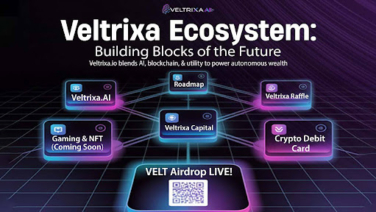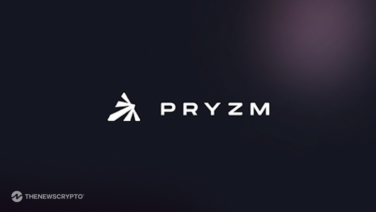- Bitrock, a layer 2 EVM-compatible sidechain, offers lower gas fees and high throughput to users.
- The network’s native token BROCK currently holds a market cap of $6.7 million.
The Layer 2 blockchain ecosystem is continually evolving, with projects like Polygon, Arbitrum, Immutable X, and Mantle leading the way. In this competitive space, where numerous innovative projects enter, distinguishing the best among them can be challenging. However, Bitrock has captured the community’s attention by establishing itself as a cost-efficient and fast layer 2 EVM-compatible sidechain.
Bitrock Adds Unique Benefits to the Layer 2 Landscape
Bitrock forayed into the blockchain scene with its stealth launch on July 13. The project set itself apart by funding its development from the team’s own resources and completing it just two months before launch. Unlike many other Layer 2 solutions, Bitrock is not a fork. It maintains a total supply equal to its circulating supply, with no locked or vested tokens, ensuring no further dilution.
One of Bitrock’s standout features is its core team’s KYC verification with Assure DeFi, a partner working closely with the FBI, the US Attorney’s Office, and various government entities. Notably, Bitrock recently underwent a comprehensive audit with CTDSEC, a blockchain security firm that audited projects such as XRP, Ethereum, and DEXTools. Bitrock’s top score in this audit signifies its commitment to security and reliability.
Bitrock employs a Proof-of-Authority (PoA) consensus mechanism, enabling faster, cheaper, and more scalable transactions. Remarkably, users benefit from lower gas fees, with transactions costing as little as $0.00001 each. Furthermore, with a block time of 2 seconds and a commendable throughput of 12,000 transactions per second, Bitrock surpasses the capabilities of established Layer 2 solutions.
In addition to these advantages, Bitrock’s native decentralized exchange (DEX) — Rockswap — is set to introduce a multichain integration layer, first with Ethereum. This enables the buying and selling of tokens on their native chains without the need for external swaps or gas fees in native tokens. Additionally, the L2 chain’s token builder utility simplifies the process of launching tokens by deploying a standard preloaded contract. This facility is accessible to anyone, even those with no coding or technical expertise.
Bitrock also encourages staking with annual percentage yields (APY) of 30% for Ethereum side staking and 60% for mainnet staking, enticing users to participate in securing the network. Currently, over 40% of the total supply is staked, indicating strong community engagement.
Bitrock on the Path to Success?
Bitrock established rapid integration with various blockchain tools and platforms over the past few months. The layer-2 solution is integrated on prominent platforms such as crypto exchange Bitmart, launchpad protocol Pinksale, and Trust Wallet Swapping and renowned crypto applications such as DEXTools, Dexview, Geckoterminal, Sphynx Labs and Avedex.
This adaptability ensures that Bitrock can be seamlessly incorporated into any wallet that supports custom networks, expanding its accessibility to users. Additionally, Bitrock’s approach to launching official partner projects involves a rigorous vetting process to ensure security and value addition to the chain.
In return for passing this process, Bitrock offers projects marketing and project support — pre and post-launch activities — on its channels as well as other various incentives. Three official partner projects have already been launched on Bitrock including Rockswap.
At press time, the native token — Bitrock (BROCK) — held a market capitalization of $6,749,877 and traded at the price of $0.06749.








